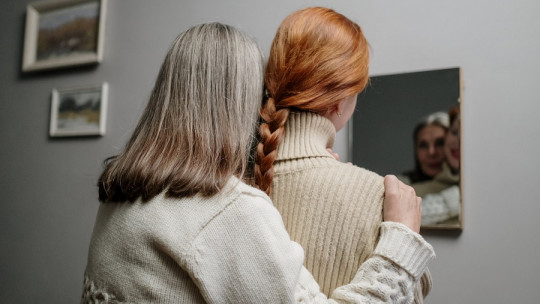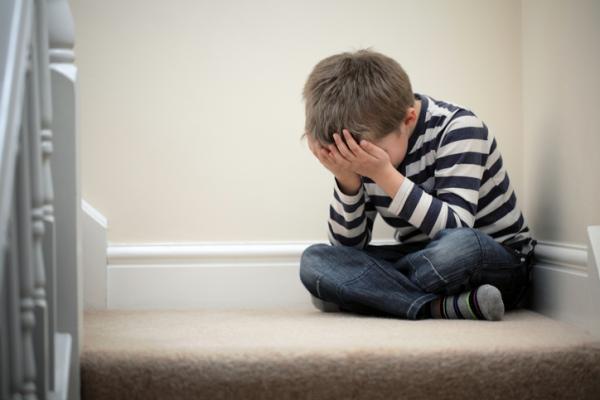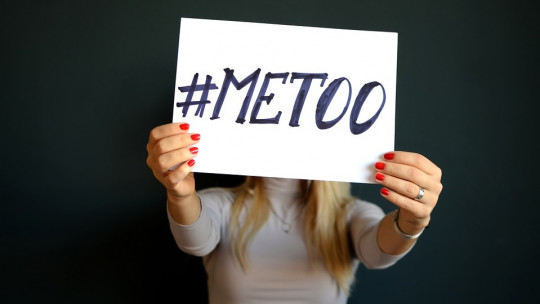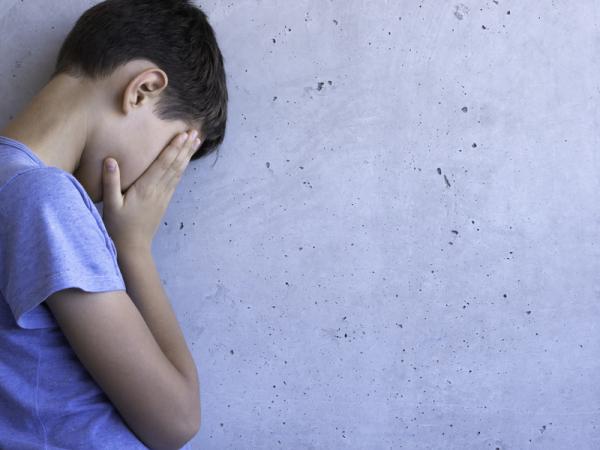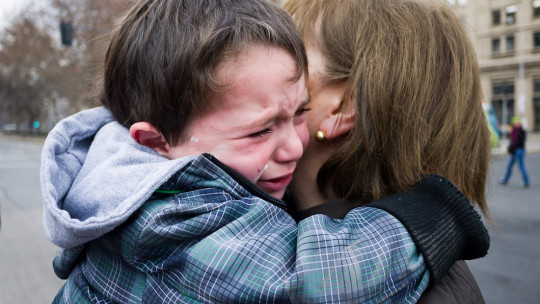The word incest refers to the maintenance of sexual relations between people united by a close bond of kinship. Emotional incest, despite its name, does not imply sexual abuse In this case, the use of the term incest refers to a form of inappropriate relationship, usually between parents and children. Unlike physical incest, emotional incest can occur without any of the parties involved being fully aware.
Emotional incest is also known as covert incest. The word “covert” refers to the difficulty in perceiving and identifying this type of abuse compared to incest that involves a sexual relationship.
Some children assume the obligation from a young age to be the emotional support of their parents. They have to listen to every problem and need their parents have, no matter how personal or intimate it is. This is a bad relationship dynamic, because children are assigned a role that should be filled by an adult, such as the partner.
In this article we will explore covert incest in detail, providing examples of behaviors that can help detect it and examine its possible consequences for children and young people who are victims of this type of abuse.
What is emotional incest?
emotional incest It is a type of abuse, difficult to detect, in which a parent looks to their son or daughter for emotional support Emotional incest occurs when meeting the needs of the parents becomes the responsibility of their sons or daughters.
Many people reach adulthood without being aware that they have been victims of emotional incest. This harmful relational dynamic does not involve a physical or sexual relationship, but rather turns the child into the mother’s or father’s confidant. In emotional incest, the parent makes her child her main source of emotional support, assigning her a role and responsibilities that should be fulfilled by an adult.
The responsible father or mother is not capable of maintaining an intimate relationship with another adult, and delegates the role of spouse to his or her son or daughter In this type of relationship, the needs of the child are not attended to or are ignored, although normally none of the parties involved are aware of the harmful dynamics of the relationship and the problems it can cause in the children.
In the long term, it is believed that the consequences of emotional incest on the victims, although to a lesser degree, are very similar to those of real incest. Self-esteem problems, sexual and emotional connection difficulties, feelings of anger or guilt towards parents, and addictions frequently occur in people who have suffered emotional incest.
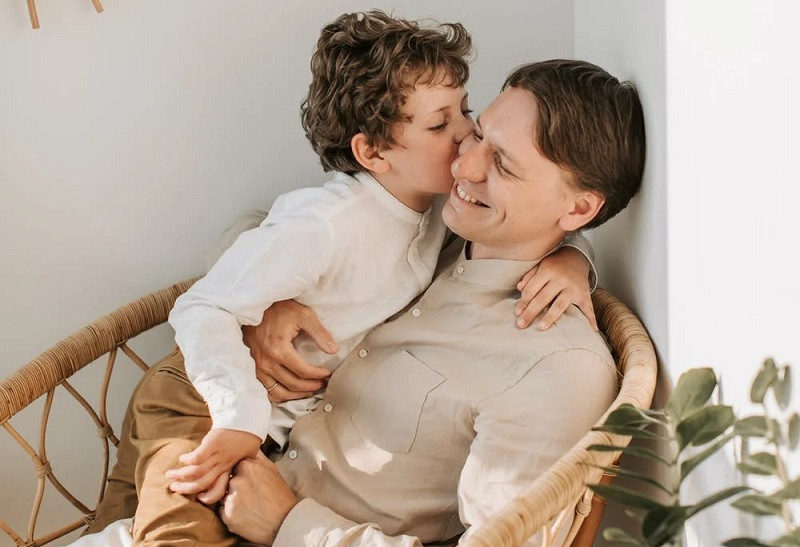
Roni Weisberg-Ross, a well-known psychotherapist, points out that the term incest may not be really useful as a diagnosis According to their criteria, emotional incest can encompass any potential problem in a relationship between parents and children, making it a single diagnosis. He also points out that the term, when referring to the needs not satisfied by a spouse, forgets other dynamics in which sons or daughters also satisfy other types of emotional needs and the limits of the relationship are diffuse, which can also cause future problems in the minors.
Alcoholism and other substance abuse are identified as risk factors in the development of covert incest. In this relationship, the son or daughter worries excessively about their sick father or mother, assuming an adult role that does not correspond to them.
How does emotional incest manifest?
When emotional incest occurs, the parent ignores the needs of his or her son or daughter, treating him like an adult instead of a child The parent does not care about the child’s needs as a responsible caregiver would, but only about their own. Some examples of emotionally abusive behaviors include:
The child as a source of comfort
This type of behavior can frequently occur in cases of separation or divorce One parent often talks about how rude and inconsiderate the other is. A person might ask their son or daughter questions, such as: Do you think it is good that (your other parent) is on time? You care more about me, right? I’m a great mom/dad, don’t you think? Do you tell him how good a mother/father I am?
In this case, children take responsibility for making their mother or father feel better, even if it is not their responsibility.
The son/daughter as a counselor
In this case the parent does not spend much time with friends And the only place he goes outside the home is work. They often say things like: “I have you and I don’t need anyone else because you are my whole world,” referring to their children.
Sometimes they ask things like, What do you think I should do? For which a child does not have an exact answer, but they feel compelled to give suggestions.
Also Guilt may appear in victims of emotional abuse The parent has a job that he hates and makes him feel sad; The son or daughter feels a little guilty because her parents have to continue at that job to support them.
These children do everything they can to support their parents, although what they should do is visit their friends after school, come home and talk about their day, or sit and do homework while someone makes dinner for them. And not the other way around.
The child as an adult
In this case, the parents do everything with their children and They can use phrases like “my other half” to refer to them
These parents can take their son or daughter on business trips or attend parties or conferences with other adults, dressing elegantly. Sometimes, because of these commitments, children may even miss school. They can also, for example, offer small glasses of alcohol, even if the child is not of legal drinking age.
All of these behaviors make children feel older, but they often accept because they do not want to disappoint their parents.
In this type of relationship, the child is treated like an adult, also at home, and current issues that should be discussed with an adult are discussed or details about past relationships are given. Also the child is encouraged to talk about his personal issues even if he does not want to do so
These children feel that their parents do not really care about them, they may even envy classmates whose parents punish them if they do not pass an exam. They feel that they need more rules and limits, and they would like their parents to exercise this role and not that of a close friend.
Other examples of inappropriate behavior
These are some examples where intrafamily boundaries are crossed in the context of emotional incest:
- Putting your needs before your child’s: At the expense of the child’s other connections, the caregiver needs to receive a lot of praise and attention, or be considered more important than other people in the child’s life.
- Invading the privacy of the child: These parents do not respect the personal space of the child. They may exhibit different types of behaviors, such as frequently invading their space or making them feel uncomfortable by ignoring their desire for privacy in different situations.
- Treating the child as a partner: A parent with this type of behavior could take the child on dates or even refer to him or her with nicknames used for adult partners, or make inappropriate comments about the child’s body or physical appearance.
- Feeling jealous of the child’s relationships: As the child grows, the parent may become jealous of his or her other relationships. They might then try to intrude on them, competing for your attention or even deliberately trying to ruin them.
All of the things we have mentioned above are just examples and it is not necessary for all (or any) of them to occur to find yourself in a situation that we can describe as emotional incest. There is covert or emotional incest when the boundaries of a relationship between a parent and their child are unhealthy
However, it is a difficult situation to detect. Parents who engage in this type of behavior are most often not aware of their problems; the child, for his part, may think that the relationship is special, or not identify it as abusive (even though he feels bad) because he does not there is sexual interaction involved.
What are the effects of covert incest?
There is not much research on covert incest and its effects on victims of this type of abuse. However, some experts point out that, although to a lesser degree, its effects are similar to those of physical incest.
The feeling of anger towards their parents difficulty starting and maintaining sexual or intimate relationships, self-esteem and self-concept problems, and substance abuse are common problems in people who have suffered this type of abuse.
The psychologist Kenneth M. Adams, who proposed the use of the term, in his book “Silently Seduced: When Parents Make Their Children Partners” indicates that emotional incest can have different consequences such as:
- Establishing a love-hate relationship with the caregiver
- Emergence of feelings of abandonment towards the parent who has left the family home (for example, after a divorce) or allows the behavior to continue
- Difficulty identifying and satisfying one’s own needs
- Self-concept problems
- Development of compulsive behaviors or addictions
- Difficulty creating and maintaining intimate relationships.
- Sexual dysfunction problems
At the moment, The Childhood Emotional Incest Scale (CEIS) has been developed which allows us to measure the effects of covert incest on a person as a child.


